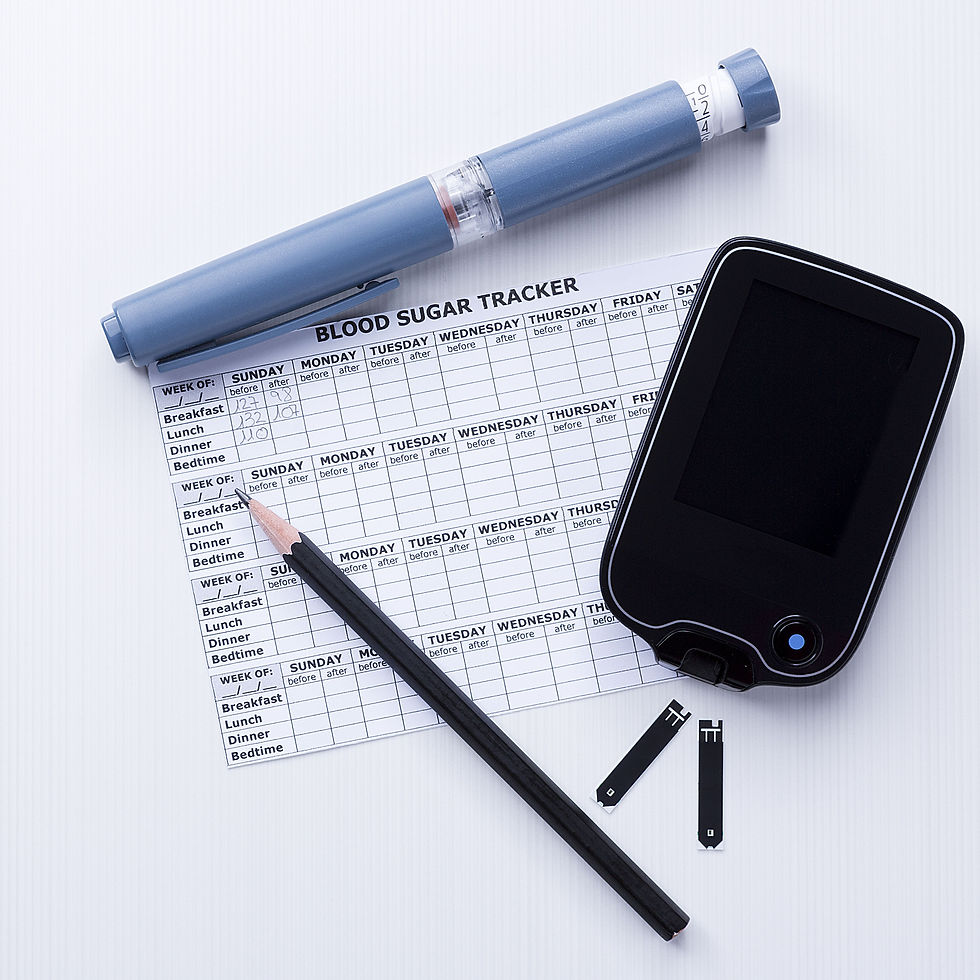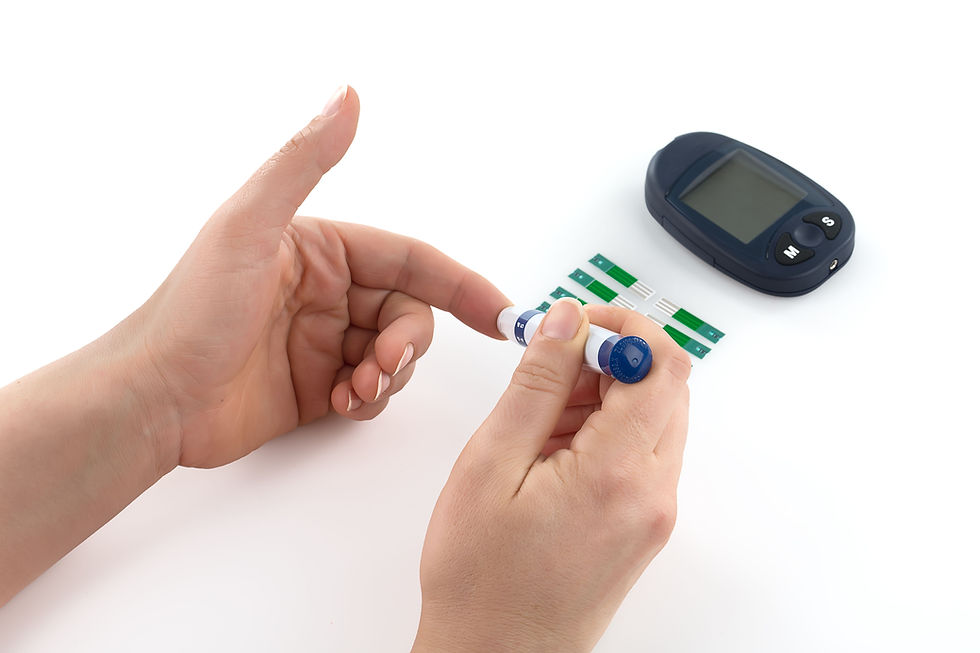The Silent Risk: How Undiagnosed Diabetes Affects Your Health
- hibulocalranking
- Mar 17
- 3 min read
Diabetes is often dubbed the silent epidemic, creeping into millions of lives without noticeable symptoms until significant damage has been done. According to the CDC, about one in five people with diabetes (about 8.5 million people) are undiagnosed. Many remain undiagnosed for years, all while the disease quietly wreaks havoc on their health. This is why it's so important to test for diabetes by investing in sources that sell diabetic test strips. Understanding the implications of diabetes, particularly when undiagnosed, is crucial in curbing its harmful effects and improving overall health outcomes.
Poor Cardiovascular Health
Undiagnosed diabetes can have a profound impact on cardiovascular health. High blood sugar levels, which characterize diabetes, can damage blood vessels over time, escalating the risk of heart disease and stroke. Without knowing that they're diabetic, individuals may not take necessary preventative measures, leaving them vulnerable to these severe complications. Fortunately, this symptom can be caught early if you turn to sources that sell diabetic test strips.
Beyond direct blood vessel damage, diabetes also contributes to other cardiovascular risk factors such as high blood pressure and unhealthy cholesterol levels. Elevated glucose levels can lead to increased LDL ("bad" cholesterol) and lower HDL ("good" cholesterol), promoting the buildup of fatty deposits in arteries. This process, known as atherosclerosis, narrows and hardens the arteries, making it more difficult for blood to flow freely. Over time, this can result in hypertension, heart attacks, or strokes. Since these changes often occur gradually and without obvious symptoms, individuals with undiagnosed diabetes may not recognize the impending danger until a serious cardiac event occurs.
Potential Nerve Damage
The risk of developing nerve damage, or neuropathy, is particularly high for those with undiagnosed diabetes. Elevated blood sugar can lead to nerve damage, causing symptoms such as tingling, numbness, or pain, especially in the feet and hands. Over time, this can progress to more serious issues, including loss of sensation and increased risk of injury, which often go unnoticed until too late without proper diagnosis.
In addition to sensory issues, diabetic neuropathy can affect motor and autonomic nerves, leading to muscle weakness, coordination problems, and complications in vital functions. Autonomic neuropathy, for example, can impair digestion, blood pressure regulation, and bladder control, significantly impacting daily life. Individuals with undiagnosed diabetes may experience dizziness, digestive distress, or even difficulty detecting heart rate abnormalities, all without realizing these symptoms stem from nerve damage.
Deteriorating Kidney Health
Uncontrolled diabetes can also compromise kidney health, leading to nephropathy, a potentially life-threatening condition. The kidneys work to filter waste from the blood, but high glucose levels can overburden this system. Over time, undiagnosed diabetes can culminate in kidney failure, a grave condition that might only become apparent when significant damage has already occurred.
In the early stages, diabetic nephropathy often presents no symptoms, allowing damage to progress unnoticed. As kidney function deteriorates, individuals may experience swelling in the legs, fatigue, high blood pressure, or changes in urination patterns — symptoms that are often mistaken for other health issues. Without intervention, chronic kidney disease (CKD) can advance to end-stage renal disease (ESRD), requiring dialysis or a kidney transplant for survival. Early detection of diabetes by investing in sources that sell diabetic test strips is crucial in preserving kidney function, as proper blood sugar control and lifestyle adjustments can slow or even prevent the progression of kidney damage.
Impaired Vision
Furthermore, vision impairment is a common consequence of undiagnosed diabetes. Diabetic retinopathy, a condition resulting from damaged blood vessels in the retina, can lead to blurred vision and even blindness if untreated. Many people may attribute their worsening eyesight to aging or other less serious conditions, overlooking the possibility of an underlying diabetes diagnosis.
Beyond diabetic retinopathy, persistently high blood sugar levels can contribute to other vision problems, such as cataracts and glaucoma. Cataracts, which cause clouding of the eye’s lens, tend to develop earlier and progress more rapidly in diabetics. Meanwhile, glaucoma, a condition marked by increased pressure within the eye, can damage the optic nerve, leading to gradual vision loss. Because these conditions often develop silently, those with undiagnosed diabetes may not realize the extent of their vision deterioration until irreversible damage has occurred.
Undiagnosed diabetes is a significant health risk that should not be underestimated. Ignorance of the condition allows it to silently impair vital functions and organs, often leading to severe health issues. Early detection and management are paramount in mitigating the damaging effects of this disease. Therefore, regular health screenings, awareness of symptoms, and investment in sources that sell diabetic test strips, such as Pay For Strips, are crucial steps in combating the silent threat posed by undiagnosed diabetes. Reach out today to get started with free shipping for your test strips!





Comments